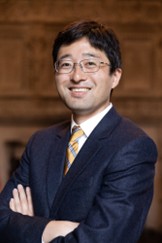Abstract
US Secretary of Defence, Pete Hegseth underscored Washington’s intent to “reestablish deterrence” at the Shangri-La Dialogue here in Singapore in June. How does the modernization of the US-Japan alliance contribute to deterrence? What does it mean for the future of the US-China competition and the regional order in the Indo-Pacific? As a frontline state in a potential US-China war conflict across the Taiwan Strait, Tokyo’s role in the shaping the military balance in the Indo-Pacific warrants attention. The talk will explore how measures taken to upgrade the alliance such as the modernization of the alliance command and control structure as well as the investment in multilateral defence relationships inform the effort to “reestablish deterrence” and shapes the strategic dynamic in the Indo-Pacific. The talk will be based on a Washington Quarterly article authored by the speaker to be published around the time of the event.
About the Speaker
 Takuya Matsuda is an Assistant Professor at the School of International Politics, Economics and Communication (SIPEC) at Aoyama Gakuin University in Tokyo, Japan. Takuya is concurrently a Non-Resident Fellow for the Asia Program at the Foreign Policy Research Institute (FPRI) in Philadelphia, Pennsylvania. His research focuses on alliance politics, great power relations, deterrence, and US grand strategy with a focus on the western Pacific. His work has been published in the Australian Journal of International Affairs, The Washington Quarterly, Survival, War on the Rocks, and Foreign Policy. He received his Ph.D. from King’s College London, M.A. from Johns Hopkins University’s School of Advanced International Studies (SAIS) and B.A. from Keio University in Tokyo, Japan.
Takuya Matsuda is an Assistant Professor at the School of International Politics, Economics and Communication (SIPEC) at Aoyama Gakuin University in Tokyo, Japan. Takuya is concurrently a Non-Resident Fellow for the Asia Program at the Foreign Policy Research Institute (FPRI) in Philadelphia, Pennsylvania. His research focuses on alliance politics, great power relations, deterrence, and US grand strategy with a focus on the western Pacific. His work has been published in the Australian Journal of International Affairs, The Washington Quarterly, Survival, War on the Rocks, and Foreign Policy. He received his Ph.D. from King’s College London, M.A. from Johns Hopkins University’s School of Advanced International Studies (SAIS) and B.A. from Keio University in Tokyo, Japan.



 Add to Google calendar
Add to Google calendar
 Add to Outlook calendar
Add to Outlook calendar
